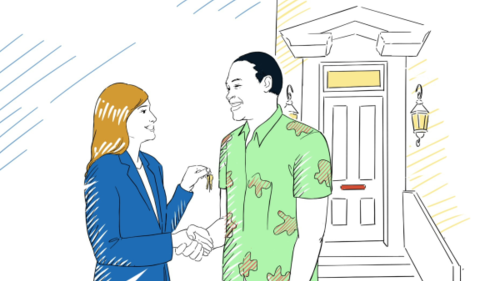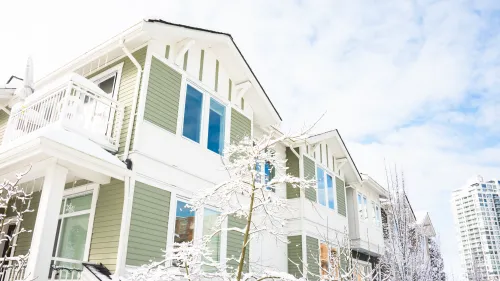Navigating Housing in the United States
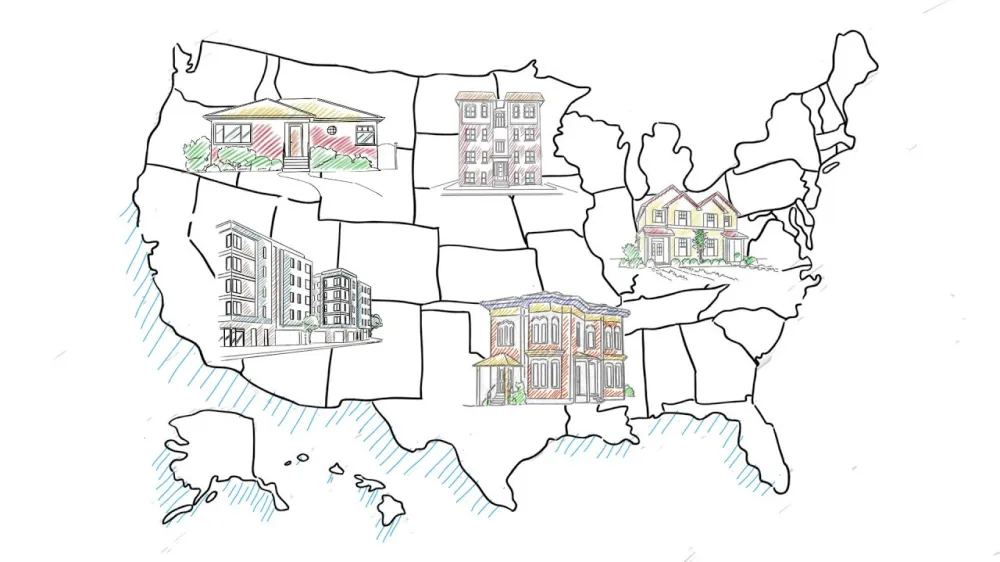
Understanding Your First Housing in the U.S.
When you arrive in the United States, you might be placed in temporary housing, like a hotel, university campus housing, or furnished apartment. Temporary housing is often in a convenient location and has basic furniture, cooking utensils, laundry facilities, and other amenities. You might stay in temporary housing for weeks or months while you find permanent housing.
Whether your first housing is temporary or longer-term, you and your family will be welcomed with a familiar meal and the kitchen will be stocked with some basic food items. Your home will also have personal hygiene and household cleaning supplies.
Finding Long-Term Housing
Housing in the United States is often expensive and finding a safe, clean, and affordable place to live can be difficult. Realistic expectations and compromise are necessary when searching for long-term housing in the U.S. Location, size, convenience, and comfort must align with your monthly income. Housing costs will be the largest part of your monthly expenses wherever you live.
You will have a limited income when you first arrive in the United States. The first housing you can afford might not match all your expectations. If you were in temporary housing during your first weeks in the U.S., like a hotel or Airbnb, your longer-term housing may not be as nice as your temporary housing was.
In time, you can find better housing as your income, credit score, and savings increase. Becoming familiar with the housing search process in your community can also make it easier to find future housing that meets your needs.
If you struggle to find affordable housing in the U.S., you are not alone. There is an affordable housing crisis in all 50 states, affecting not only refugees and other newcomers but also U.S. citizens.
For tips on finding housing in the United States, see Six Tips to Remember When Looking for Housing in the U.S.
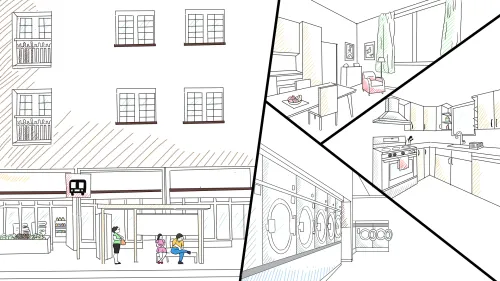
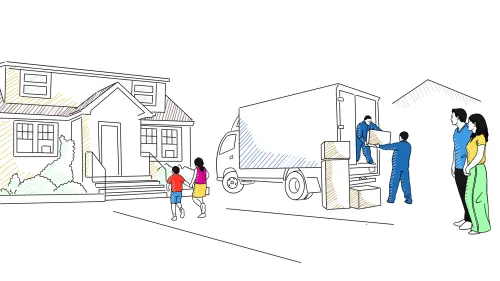
Identifying Your Housing Needs
Before starting your housing search, you should identify your housing needs. These are the things that you must have when finding housing. To help identify these needs:
- Consider your budget to know how much you can afford for rent, and be sure to understand what additional costs might be involved. If you rent a home, consider any additional monthly costs, like utilities or insurance.
- Think about the size of the home you need, including the number of rooms and parking options for your vehicle.
- Ask yourself if the location meets your family's needs. For example, consider travel to work and school and if public transportation is available. If you or someone in your family has accessibility needs, make sure your housing can meet those needs.
- Assess the safety of the neighborhood and make sure there are emergency services like police and a hospital or clinic nearby.
Every family is different and has different needs. These questions can help you identify your or your family's unique needs and understand what home is best.
Frequently Asked Questions
If you are unable to find affordable housing where you live, the U.S. government has programs to help low-income families:
- Mixed Income Housing includes apartment buildings that have some market rate apartments as well as some apartments reserved for renters with lower-than-average household income lower for the area. This type of housing is limited and not available in every city or town.
- Public Housing is affordable housing built and supported by federal and local government funding. In public housing, rent is based on a fixed percentage of a household’s income. This type of housing is limited and there is usually a waiting list.
- Housing Choice Voucher Program housing, which some call Section 8 housing, is also subsidized by the U.S. federal government, which pays a rental property owner to keep the housing affordable. This housing is limited to people, including refugees and newcomers, who apply and qualify for subsidized rent.
To learn more about these government renting programs and to see what affordable housing options may be available to you, please go to: https://www.hud.gov/states .
It is recommended that you stay in your rental housing for 6-12 months to prove that you have a good rent payment history. Your rent payment history will help when you look for a new place to live and show landlords that you are a reliable tenant.
If you’re considering moving to another location, here are some things to remember:
Breaking Your Lease
If you rent from a landlord, you need to be careful about breaking your lease. The lease will specify how long you can live in the apartment. In most cases, this is one year. If you move out sooner than the lease end date, you likely will have to pay a penalty, or possibly even pay for all the remaining months on the lease.
Your lease will also outline the amount of time you're required to notify your landlord if you plan to move out or request a lease renewal. This is called notice to vacate. In most cases, you will need to provide notice 30 to 90 days before your lease renewal or move out date.
If you’re planning to move, check your lease and talk to your landlord to understand what will happen if you break your lease early.
Complete Your AR-11
You are required to notify U.S. Citizenship and Immigration Services (USCIS) of any address change within 10 days each time you move, even if you are moving to a temporary location. You also need to tell USCIS about your new address by filling out a form called AR-11. This helps them keep track of where you are.
Apply for Services and Benefits
It’s very important to understand that moving might also change the support you receive from local services, like food assistance or health care. You might need to apply for these again in your new community, and the services you receive could be different.
Disclaimer: This resource was created in partnership with Refugee Housing Solutions. Refugee Housing Solutions is a project of Church World Service under an agreement paid for by the U.S. Department of State.
